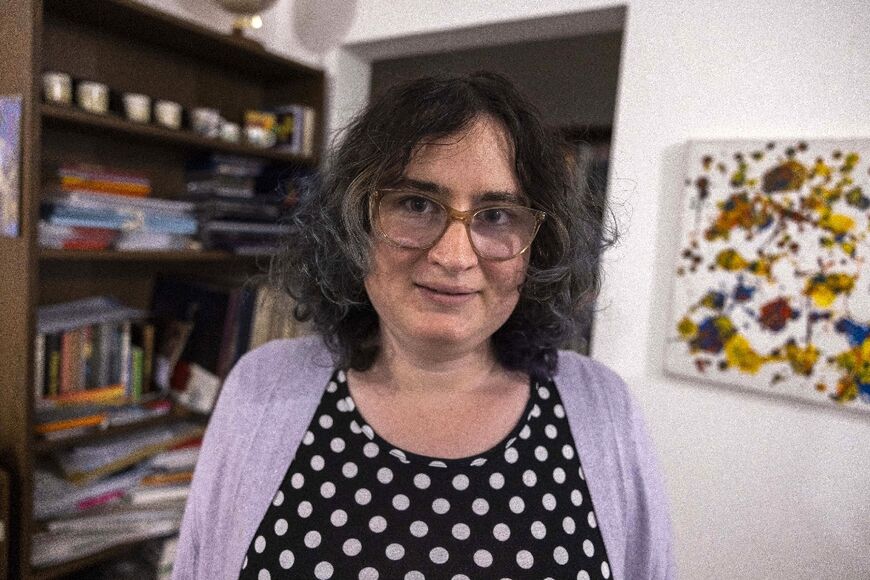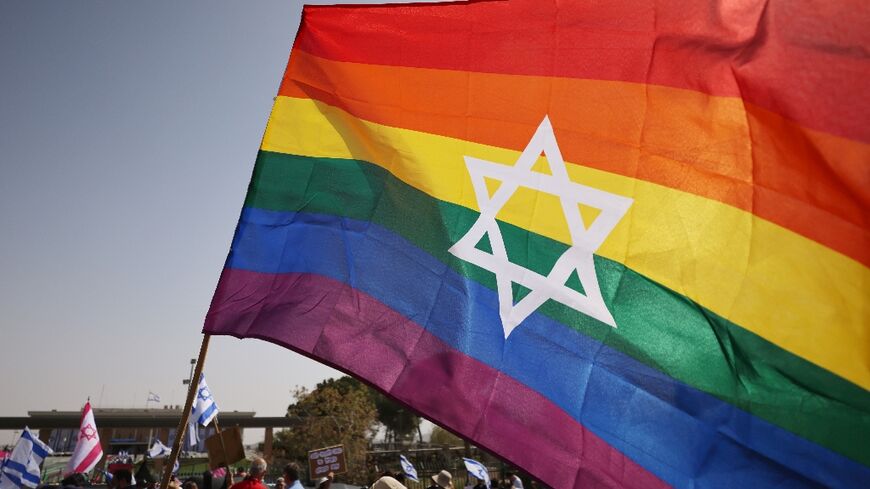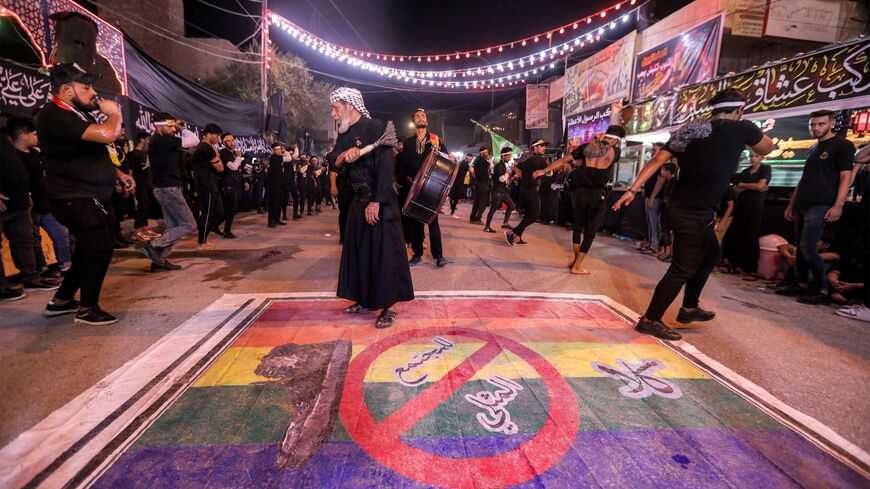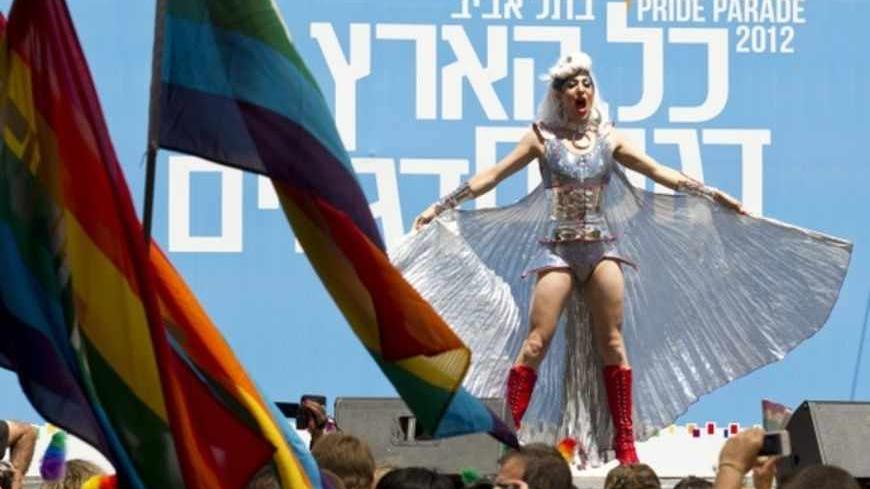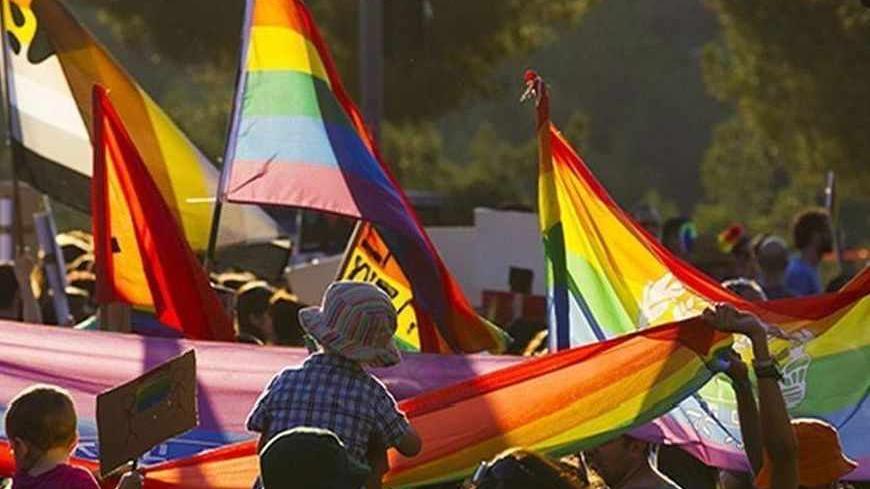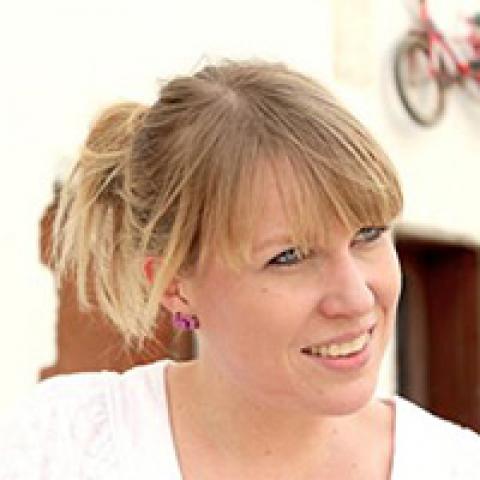Israel's transgender Jews struggle in Orthodox circles
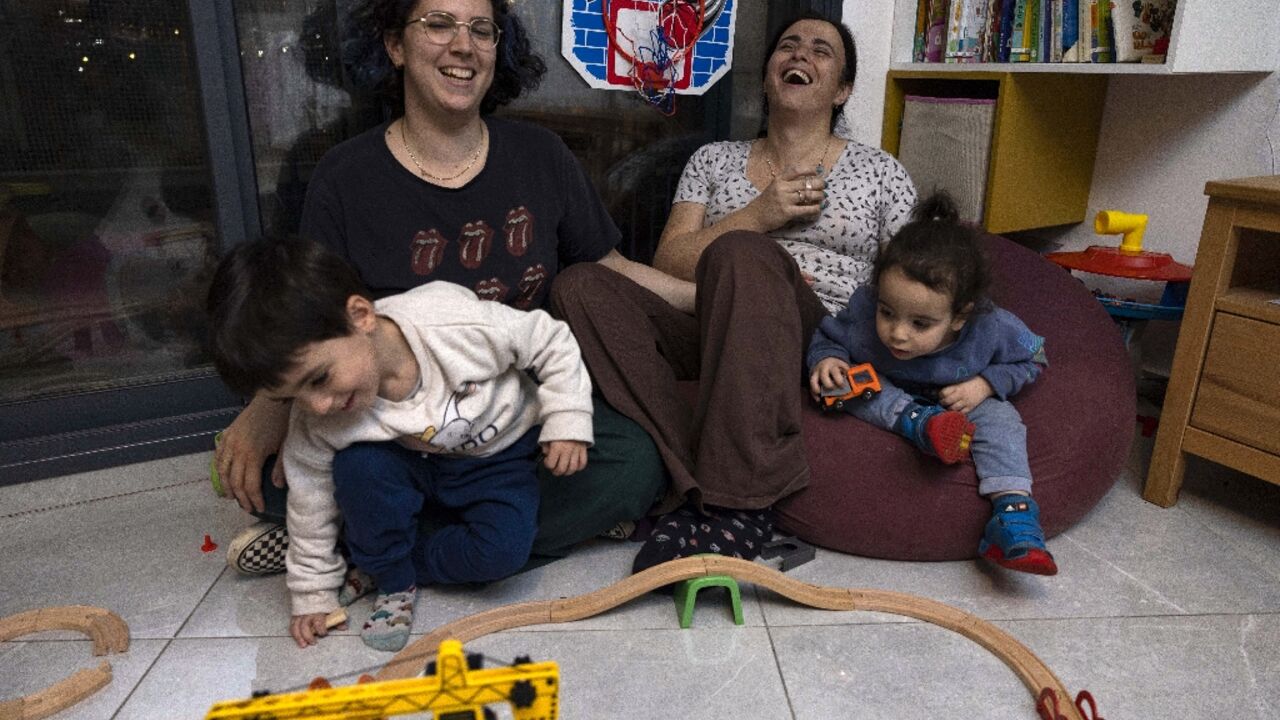
Yael Rashlin holds on to her Jewish practices, but as a transgender woman in Israel, she struggles to find acceptance in her Orthodox community -- a feeling exacerbated by the country's new right-wing government.
Along with her partner, Rashlin is busy wrestling with piles of clothes and toys that have been scattered around by their children, ahead of the Shabbat day of rest.
"I can no longer pray to the same God as people who today are trying to destroy my community and destroy our lives," she said, referring to the anti-LGBTQ agenda espoused by some cabinet members.
She has undergone a social transition, which included changing her first name and clothing.
But unlike other Orthodox women, she recently decided to stop covering her hair as a way of distancing herself from the community.
"Religious (heterosexual) couples can walk in the street holding hands, but if I'm wearing my headscarf, I cannot hold another woman's hand because it raises questions," she said.
Rashlin, a 43-year-old computer engineer, stopped wearing her scarf a few months ago, because she was bothered by the looks and comments people from her community made.
Israel has the most progressive LGBTQ legislation in the Middle East and over the past decade there has been more openness about same-sex relationships, even among religious people.
But discussions around gender identities remain taboo in the Orthodox community, and disquiet has grown among LGBTQ people since the government took office in late December.
Rashlin and her wife Hadar had a wedding ceremony in Israel a few years ago which was not recognised by religious authorities and the state.
Conducting same-sex marriages is banned in Israel, which instead legally recognises such unions officiated abroad.
"The price to pay has become too heavy to manage this conflict between being an LGBTQ couple and part of the Orthodox community," said Hadar Rashlin, 30.
Yael Rashlin has five children, including three from a previous marriage before she transitioned.
- Suicide risk -
"There's a fear among rabbinical authorities saying that transgender (people) exist, that it's not a sickness or a fad," she said.
Many of her transgender friends have killed themselves in recent years. Across Israel, 40 percent of the transgender community has attempted suicide, according to a 2020 health ministry report.
This figure is even higher among the Orthodox community, according to Rotem Sorek who heads the Maavarim association supporting transgender people.
"Their distress is even greater. They often have to face rejection not only from their loved ones, but also from their community. And so, they're even more in danger," she said.
The situation is particularly worrying for Benny Lau, an Orthodox rabbi who has for years supported gay Jews and has sometimes encountered transgender people.
"There is an obligation for every human to try and help another human to live," said Lau.
"When you carry the role of a rabbi, of a leader, you must take care of the life of every individual," he continued, stressing that the most important duty in Jewish law is to protect life.
"There are many men of religion and Torah pupils who react either with fear or with a deep objection to this whole phenomenon of transgenders."
Lau recalled writing a letter for a transgender woman confirming her identity so that she would be accepted in the women's section of her synagogue, as houses of worship are segregated in Orthodox communities.
The hostility of most rabbis towards transgender identities is part of their broader battle against modernity, said Lau, rather than upholding Jewish law which "is subject to interpretation and in which one can find many justifications" for different identities.
- Hostility from top ministers -
Lau's liberal approach is antithetical to positions held by some newly elected Israeli lawmakers, notably those within the government which took office in December.
Finance Minister Bezalel Smotrich and fellow coalition member Avi Maoz, a deputy minister in the premier's office, have both expressed vehemently anti-LGBTQ views.
Shani Armon, another Orthodox transgender woman, said: "I don't think that there will immediately be anti-LGBTQ laws, but more than laws, I'm worried about the daily work of the government."
A computer engineer, the 29-year-old feared "a reduction in the budgets for centres helping LGBTQ" people.
Reflecting on the new coalition, Yael Rashlin said she has considered "leaving Israel if the situation becomes really impossible".
"Why is it really so difficult?" she asked of her community's inability to accept her identity.
"Why are we considered a bone in the throat?"


